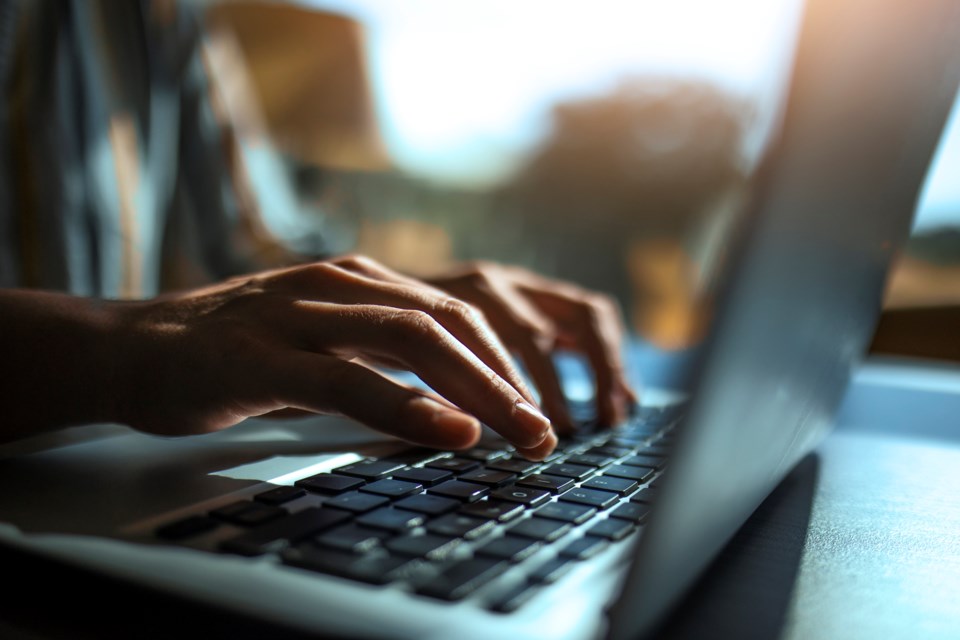Interested in more careers-related content? Check out our new weekly Work Life newsletter. Sent every Monday afternoon.
E-mails are forms of writing, an expression of our thoughts through our tapping fingers. But skills coach Kate Nasser suggests your e-mails responding to colleagues would be improved if you took time first for reading aloud.
“If you are responding to an e-mail, reread the first e-mail as if that person is speaking to you. Listen to what they are saying, what they are not saying and what, if anything, they are asking,” she advises in her blog.
If there are gaps in your understanding, she urges you to replace any annoyance you may have with clarifying questions because you must be non-judgmental in e-mails. Assume for now that they did not intend to confuse you. That will prevent your frustration and annoyance from showing through in your reply.
“Remember that your mindset affects your listening and that affects how you will write. E-mails are not a place to show your anger. It spirals out and creates problems far beyond your temporary displeasure,” she says.
She recommends putting the purpose of the e-mail right at the beginning. That clarifies what will follow. For example, if you have questions at the end needing their attention, indicate that at the beginning. It makes reading your e-mail much easier.
Similarly, she recommends clarifying your intentions. That helps to qualify any moments in the email where you must say something recipients may find unsettling. If you declare “my intention here is to …” that can prevent people from assuming something else – presumably negative – about you.
Her guideline is that e-mails must be respectfully honest but not blunt. “Honesty is factually truthful yet delivered with care,” she explains. “On the other hand, blunt is truthful but also packed with emotion and your opinion stated as a fact. Bluntness is not a right you can assume. It’s not a gift you give someone. It is a privilege someone grants you when they know and trust you well.”
Ottawa-based productivity consultant Chris Bailey recommends limiting yourself to five sentences in e-mails. This limit should not be secret; indicate in your e-mail signature that to respect the time of others, you try to keep every e-mail to that length.
“I felt rude when I first adopted this tactic. Over time, though, I’ve started to see a similar disclaimer in messages from others. If you need to type something longer than five sentences, it’s a good cue to pick up the phone and call the person,” he writes on his blog.
If that seems too restrictive, Ms. Nasser’s recommendation for respecting the time of the other person is to use section headings, paragraphs and bullet points. That will help ease people through your messages and could lead to quicker, better-framed responses.
Mr. Bailey also suggests:
- Conduct e-mail sprints: Instead of checking e-mail throughout the day, dedicate 15 or 20 minutes for an e-mail sprint. Set a timer and get through as much e-mail as you possibly can. He says creating an artificial deadline will help you plough through more messages while turning the effort into a bit of a game.
- Set auto-responders more frequently: These don’t have to be confined to vacations. Even when you’re working, an auto-responder can give you immense freedom to not check e-mail, especially when you give those messaging you a way of contacting you with anything urgent.
- Delete e-mail apps from your phone: This may not work for everyone, but it has been golden for him since he’s not paid to be on call and the e-mail app on his phone had been an energy drain. He gets more done now and urges you to question whether you really need e-mail on your phone.
- Tackle e-mail during periods of low energy: E-mail is probably an essential component of your job, but it’s probably not the most important thing you do and can be handled in low energy times.
“Often the best productivity tactics are simple – even common sense in hindsight,” he concludes. “Give them a shot – you might be surprised by how well they work.”
Quick hits
- Ottawa thought leader Shane Parris says your editing time on e-mails should be allocated according to the principle you have a very short time to capture somebody’s attention and then a little longer to hook them. That means dedicating 40 per cent of your editing time to perfecting the first sentence, 40 per cent to refining the next two or three sentences, and just 20 per cent to polishing the remainder.
- Productivity author Laura Vanderkam recommends regularly repeating this mantra: “I have as much time today as I ever will.” If you don’t feel like doing something today – it doesn’t fit in – you will most likely not feel like doing it in the future either. Be realistic in addressing the item.
- Keep a journal for a week or two to identify the situations that stress you most and how you respond to them, Korn Ferry career and leadership coach Val Olson advises. You might discover that you’ve already developed effective coping strategies, but don’t use them consistently. Or it might reveal the situation wasn’t as stressful as you initially thought; your mind was making it into a much bigger deal. Challenging negative thoughts by asking if they’re true is a good stress reducer.
Harvey Schachter is a Kingston-based writer specializing in management issues. He, along with Sheelagh Whittaker, former CEO of both EDS Canada and Cancom, are the authors of When Harvey Didn’t Meet Sheelagh: Emails on Leadership.



